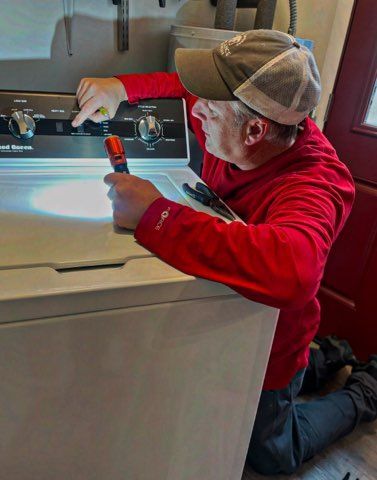When to Repair vs. Replace Your Appliance: A Comprehensive Guide
When to Repair vs. Replace Your Appliance: A Comprehensive Guide

Every homeowner eventually faces the dilemma of dealing with a malfunctioning appliance. Whether it's a refrigerator that no longer cools or a washing machine that refuses to spin, the question arises: should you repair the appliance or replace it altogether? Making the right choice can save you money, improve efficiency, and even enhance your home's value. In this guide, we'll explore the key factors to consider when deciding whether to repair or replace your appliance.
1. Assess the Age of the Appliance:
The age of your appliance is a crucial factor in your decision-making process. Most appliances have an average lifespan, and knowing this can help you determine whether a repair is worth the investment. For example, refrigerators typically last about 10-15 years, while washing machines and dishwashers have a lifespan of around 8-12 years. If your appliance is nearing the end of its expected life, replacement might be the more economical choice.
2. Evaluate Repair Costs:
When faced with a broken appliance, it's essential to estimate the repair costs, including both parts and labor. A useful rule of thumb is the "50% Rule": if the cost of repairing the appliance is more than 50% of the price of a new one, it may be more cost-effective to replace it. Additionally, consider the frequency of repairs; frequent breakdowns can indicate that the appliance is on its last legs.
3. Consider Energy Efficiency:
Newer appliances are often more energy-efficient than older models, which can lead to significant savings on your utility bills over time. When evaluating whether to repair or replace, consider the energy efficiency of your current appliance. Upgrading to a model with an ENERGY STAR rating or other energy-saving features can reduce your environmental footprint and lower your monthly expenses.
4. Factor in Technological Advancements:
The appliance industry is continually evolving, with new technologies enhancing convenience, performance, and safety. Modern appliances often come equipped with smart technology, allowing you to control them remotely, monitor energy usage, and receive maintenance alerts. If your current appliance lacks these features, upgrading could improve your home's functionality and your quality of life.
5. Analyze the Impact on Home Value:
Updated appliances can significantly enhance the appeal and value of your home, especially if you're planning to sell in the near future. Prospective buyers often look for modern, efficient appliances that complement the home's style and meet their needs. Investing in new appliances can be a selling point that sets your home apart in a competitive market.
6. Environmental Considerations:
When deciding to replace an appliance, it's important to consider the environmental impact of disposal. Many old appliances can be recycled, reducing waste and conserving resources. Additionally, choosing energy-efficient models contributes to a more sustainable lifestyle. Research local recycling programs and eco-friendly disposal options to minimize your environmental footprint.
Conclusion:
Deciding whether to repair or replace an appliance involves weighing several factors, including age, repair costs, energy efficiency, technological advancements, and environmental impact. By carefully considering these aspects, you can make an informed decision that benefits both your wallet and your home.
Call to Action:
We'd love to hear about your experiences with appliance repairs and replacements. Share your stories or questions in the comments section below. If you're unsure about your appliance situation, contact us for a free consultation or assessment. Let "The Appliance Whisperer" help you make the best choice for your home!


